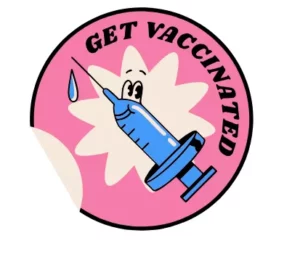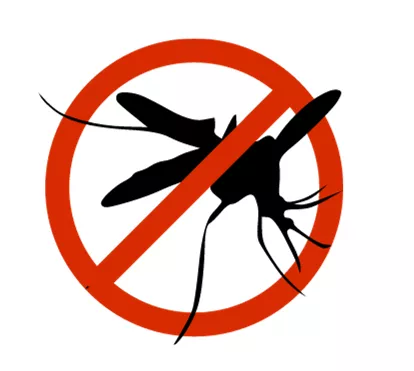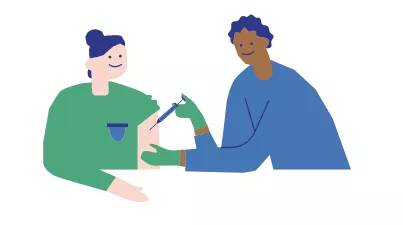Engaging with Anti-Science Acolytes: Is it worth it?
October 11, 2023

Back in June an interesting exchange of opinions was published in the New York Times that strikes at one of the biggest challenges facing Critica and other organizations that strive to improve the public’s understanding of science. Columnist Farhad Manjoo began the exchange by noting that he debated Robert F. Kennedy Jr. back in 2006, not about vaccines but about the results of the 2004 presidential election. In his piece, titled “It’s not possible to ‘win’ an argument with Robert F. Kennedy Jr.,” Manjoo wrote about his frustration with the debate: “At best, the effort was a waste of time and energy; at worst, a big bow-wrapped gift of the thing a conspiracy theorist desires most—recognition that his arguments are important enough to merit serious debate.
Manjoo concluded from his own experience debating Kennedy Jr. and from a recent episode of Joe Rogan’s podcast in which Kennedy Jr. espoused his anti-vaccination ideas, that debating anti-science acolytes is not only worthless, but it may also make things worse. “You can come armed with all the facts in the world, but when you’re dealing with a conspiracy theorist, there’s no real way to ‘win’ an argument,” he wrote. “For people whose views aren’t anchored to facts, winning is simply getting attention—and when you publicly argue with someone like Kennedy, you’ve already lost.”
For Manjoo, then, it is better to ignore the anti-science celebrities than to give them a platform, because “trying to fight misinformation with facts is a tricky business.” Manjoo believed he lost his debate with Kennedy Jr. in 2006 because “I couldn’t help but sound like the boring, persnickety nerd stuck in the weeds.” Facts don’t matter to conspiracy theorists, Manjoo argues; they make up their own facts. What they want is attention and debating with them publicly gives them just what they want.
A Different View
A day later, however, New York Times columnist Ross Douthat weighed in with a countervailing opinion. Douthat also wrote about an experience debating a celebrity, in his case the late anti-religion activist Christopher Hutchins. Douthat believes he lost that debate (“In my memory it was a brutal affair…I threw some carefully rehearsed, extremely reasonable arguments at him; he batted them wittily away”), but his takeaway is much different from Manjoo’s. “The lesson I actually took was Ross, you blew it, do better next time” (italics in the original).
Douthat advocates debating acolytes like Robert F. Kennedy Jr. because he insists that there are people listening to such debates who may be persuaded by facts and reason. He calls these bystanders “the suspicious” and argues that refusing to debate a charismatic figure leaves the suspicious with only one side of the story, “whereas argument, while it risks much, gives you a chance to make the suspicious feel like their suspicions are being taken seriously, to regain the trustless person’s trust.” If you don’t engage in the debate, he insists, “you need some other theory of how the curious can be persuaded away from his ideas. Right now, the main alternative theory seems to be to enforce an intellectual quarantine, policed by media fact-checking and authoritative expert statements. I’m sorry, but that’s just a total flop.”
In the end, then, Douthat concludes that “the goal is not to get Kennedy himself to concede that, say, the vaccine-autism link has never been substantiated. Rather the hope is to persuade part of your audience, to change minds at the margin.”
Hotez Turns Down Debate
The accomplished pro-vaccine advocate Peter Hotez MD PhD, dean of the National School of Tropical Medicine at Baylor College and author of the recently published book The Deadly Rise of Anti-Science, has refused to debate Robert F. Kennedy Jr. publicly even though Joe Rogan and others have put up a pot of what is reputed to be over $2 million in charitable donations if he does so. Hotez declined for reasons like those Manjoo articulates—that you can’t really win a debate with an acolyte like Kennedy Jr. and you only give him another chance to air his anti-vaccine rhetoric.
We tend to agree with Douthat, however, with some qualifications. It is true that debating anti-science acolytes in public is a perilous undertaking. Scientists tend to rely on empirical evidence—or at least that is what should be the basis for their conclusions. Acolytes cherry-pick the evidence and spin it in ways that suit their mythmaking, but they do so with great aplomb, often making the scientist at the other end of the debate look flat-footed. Being right is not enough in these debates, it seems. And there is always the scary possibility that the acolyte will take umbrage at your decision to oppose them and sue you for defamation. These lawsuits generally get dismissed, but small organizations like Critica and private individuals take on a huge financial risk if they dare to take on the acolytes.
Despite these worries, however, Douthat is right to focus on the people “on the fence” who may be listening to what people like Kennedy Jr. say and wonder why no one is bringing opposing ideas to the fray. Will those bystanders, who have not yet made up their minds, be misled into concluding that there are no opposing voices if none present themselves?
It is definitely a brutal affair to debate the anti-vaccine iconoclasts and other celebrities who voice anti-science attitudes. We arm ourselves with facts and acknowledge that science always involves an element of uncertainty and is always subject to change as new evidence emerges. It is just these elements that anti-science voices exploit; every admission by scientists that there is something we are not yet quite sure about is spun to mean that science doesn’t know what it is talking about, that the anti-science advocate has the answers that scientists lack. Yet our feeling is that to the extent it is deemed safe to do so we must engage the anti-science voices however unpleasant the experience might be.
How we do this is the subject of a great deal of ongoing research. We know that facts are important, but we also understand that they are insufficient in most cases to turn the tide against a practiced charismatic anti-science debater. Douthat hints at a critical point when he says that a goal of engaging anti-science iconoclasts in public is to “make the suspicious feel like their suspicions are being taken seriously.” The first thing we must do, then, is to try to understand the underlying fears and beliefs that make the suspicious hesitant. Rather than marching in right away with a recitation of facts, we need first to ask the bystanders what motivates their concerns about things like vaccines. Only when it is clear that we take those fears seriously and that we are prepared to listen to them can we form the kinds of relationships with suspicious people that will allow us to bring facts into the conversation.
There is also always the risk when engaging the anti-science acolyte in public debate that they will distort the facts and twist what a legitimate scientist says and wind up convincing even the suspicious, hesitant bystander that the anti-science position is correct. It is imperative, then, that scientists who engage in these debates remain calm, stay alert to distortions, and be vigilant that incorrect statements are not left unchallenged. Above all, however, we must remember that if we do not engage the acolyte then we have virtually no chance of persuading the bystander.
From both Manjoo and Douthat we conclude that we must forget about trying to win debates with celebrities like Robert F. Kennedy Jr. Winning the debate is not our goal. Rather, we must focus our attention on all the people listening into these debates and ensure that they hear empathic voices that speak out for science.
Related Posts

Mosquitoes Are Winning, But There May Be Solutions
Posted in GMOs
Mosquitoes are the most deadly animal out there. What are some new ways that we're trying to eliminate this threat?

A New Vaccine Is Approved for RSV: What Are the Anticipated Concerns?
Posted in Vaccines
What everyone needs to know about the new RSV vaccines for older adults and pregnant people.